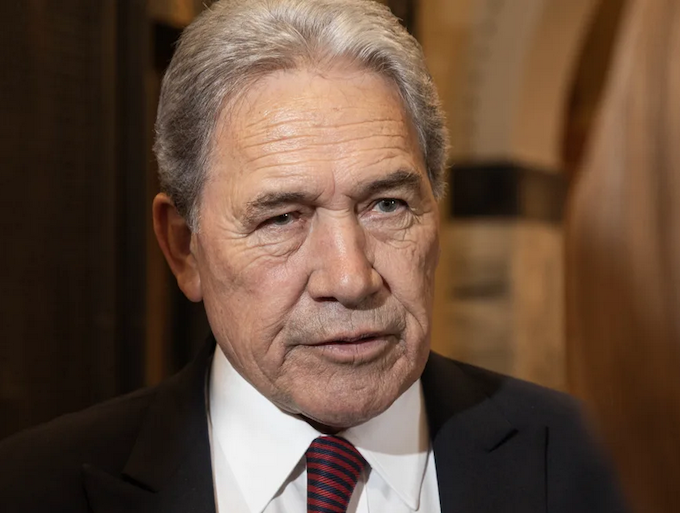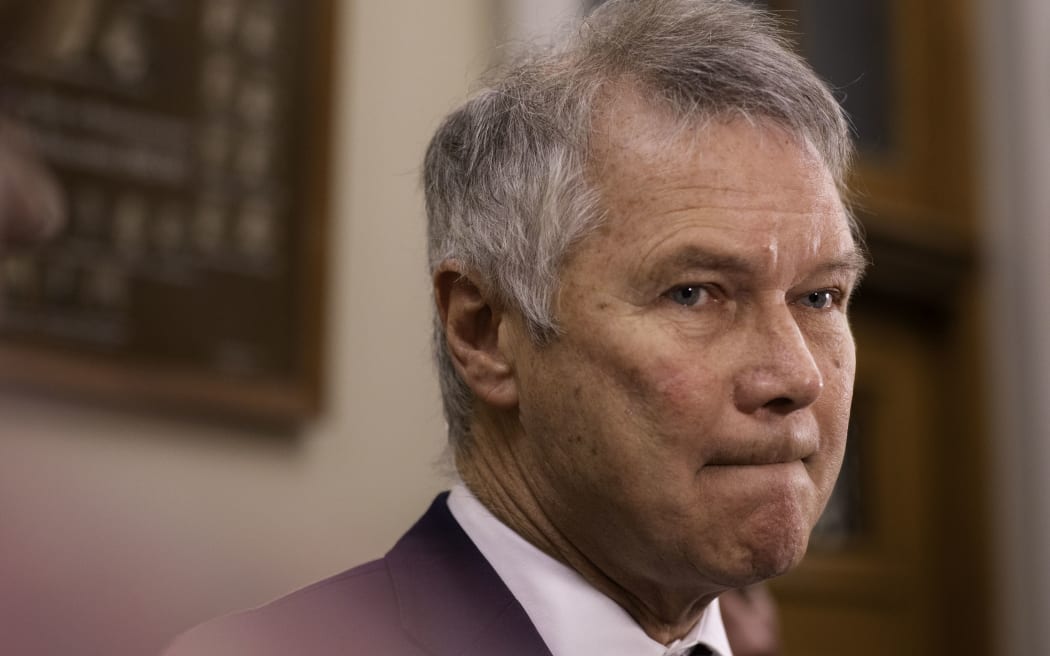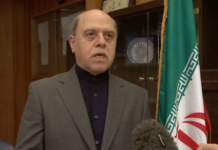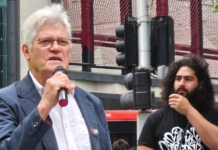
By Russell Palmer, RNZ News digital political journalist
New Zealand’s Foreign Minister Winston Peters is putting off recognition of Palestine as a state, despite opposition Labour’s formal request that he make the move.
Peters said diplomatic recognition of Palestine was a matter of “when not if”, but doing so now could impede progress towards a two-state solution — and the focus should be on aid for civilians.
Labour’s foreign affairs spokesperson David Parker had written to Peters, calling for New Zealand to take “meaningful action” by recognising Palestine as a state.
He noted this did not mean a recognition of Hamas, “which is one political party in the Palestinian territories”.
“There can be no lasting peace without Palestinian statehood,” Parker wrote, pointing to 139 of the 193 member states of the United Nations having already recognised it.
“Recognition signals this. It doesn’t matter that the state is yet to be fully established, with agreed borders. Many states and much of the Western world recognised Israel well before it was established as a state. Similarly with Kosovo.”

Parker said New Zealand should do this by inviting the Palestinian Authority to send an ambassador to present their credentials to New Zealand, a role which could be performed by the Head of the General Delegation of Palestine based in Canberra Izzat Abdulhadi.
‘Immediate ceasefire’ needed
Peters, however, said the “immediate and urgent need is for an immediate ceasefire and the provision of aid to help alleviate the desperate plight of an innocent civilian population”.
“The government supports the establishment of a Palestinian state and has done so for decades. We must see momentum towards this goal and it’s a matter of ‘when not if’ we see Palestinian statehood,” he wrote.
However, he said they could not afford to take focus away from the current crisis.
“Bluntly asserting statehood unilaterally at this point, however well intentioned, would do nothing to alleviate the current plight of the Palestinian people. Indeed, it might impede progress.
“We would need to be sure that any change in our current settings would contribute credibly to a serious diplomatic push to achieve a two-state solution. We do not believe we are currently at that point.
“We are realistic that achieving this will require serious negotiations, including over the territory and political authority of a future Palestinian state. Statehood is neither a prerequisite for renewed negotiations, nor is it a guarantee they will progress faster.
“It is important for any Palestinian state that it does not contain elements that threaten Israel’s security, and that the Palestinian Authority can govern effectively. That is why we have said an organisation like Hamas — which commits terrorism — cannot be part of future governance in Palestine.”
Case for recognition
Parker had laid out his case for recognition, saying Israel had ignored two resolutions of the UN General Assembly backed by an overwhelming majority of the world’s nations, including “its closest ally, the United States, which has repeatedly said the loss of civilian life in Gaza is an unacceptable price to pay for Israel’s pursuit of Hamas”.
“The international community, including New Zealand, should not stand by and watch Israel breach international law and ignore entreaties without taking meaningful action,” he wrote.
“The absence of progress for many years, and the current war, make the status quo ever more untenable.
“The occupying Israeli government forces cannot legitimately continue to deprive Palestinians of basic rights to govern themselves.
“We believe it is time now for New Zealand to reinforce our opposition to the war and our support for a lasting peace including Palestinian independence.”
Parker said Australian Foreign Minister Penny Wong’s recent statements also contemplating recognition was coincidental, and Labour had already decided to make the proposal to Peters.
He accepted it was unlikely Peters would be able to give an immediate response, other than to say no.
This article is republished under a community partnership agreement with RNZ.
- Asia Pacific Report says that in the UN Security Council vote last week, only the US voted against Palestine becoming a full member of the United Nations by using its veto. But an overwhelming majority of 12 nations out of the 15 voted in favour of admission, including three of the permanent members (China, France and Russia). Only the fifth permanent member, UK, and Switzerland abstained.
- Palestine currently has had permanent observer status since 2012.











































